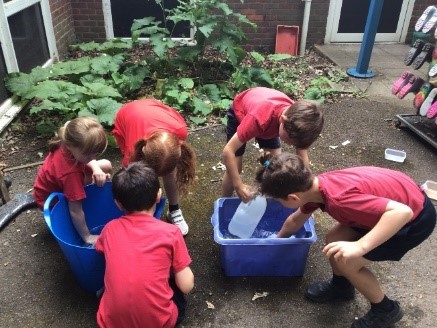Communication is fundamental to a child’s development. The ability to communicate and interact with others is essential for children to learn, play and develop friendships.
Some children experience difficulties with communicating and interacting with others. They may experience difficulties with one or more of the following:
- Understanding what others are saying
- Using words to express themselves
- Listening and paying attention
- Interacting with other children
- Pronouncing words
- Speaking fluently

Some children experience difficulties with communicating and interacting with others. They may experience difficulties with one or more of the following:
- Understanding what others are saying
- Using words to express themselves
- Listening and paying attention
- Interacting with other children
- Pronouncing words
- Speaking fluently

How do we support children with needs in this area?
Some children have mild communication difficulties that can be supported through high quality teaching in class.
We use screening tools provided by the NHS speech and language therapy team to check the speech and language skills of children who may be displaying difficulties. This allows us to seek additional support and advice as required. Staff also attend specific language related courses to support the needs of children.
Targeted / Individualised Support

A small group intervention designed to develop communication skills.

Visual timetables are used in classrooms and for individuals to support their understanding of the structure of the day.

Stories are written and shared with children to introduce them to new social situations, change in routine or to address behavioural changes.

Visual symbols can be used as a learning tool, part of visual timetable and to create now/next boards.
Specific interventions for children based on advice from outside agencies.

Bucket time
An intervention to build attention and interaction skills.
What can you do at home?
If you think your child might need help with their communication and interaction needs at home you can support them in the following ways:
- Emphasising key words or phrases when speaking to them
- Ensuring that attention is gained before asking questions or giving instructions
- Use their name to gain their attention
- Using non-verbal means of communication e.g. gestures (nodding/ shaking head), picture cards (for daily routines)
- Engage the child in joint activities that they have an interest in
- Follow the child lead, rather than directing them this will make them more likely to engage in the activity